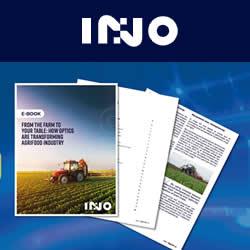USC’s Sustainable Seaweed Aquaculture Lab Lands at AltaSea
Dr. Sergey Nuzhdin’s 6,000 square foot aquaculture lab joins Holdfast Aquaculture and Carlsbad Aquafarms, accelerating AltaSea as the hub for aquaculture in Southern California
AltaSea at the Port of Los Angeles has announced a new partnership with University of Southern California (USC) professor Dr. Sergey Nuzhdin of the Dornsife College, Biological Sciences Department, to establish an expansive seaweed lab - the Nuzhdin Research Laboratory - on the AltaSea campus. The 6,000 square foot lab will be the home to groundbreaking research on regenerative aquaculture as well as commercial application of new technologies in aquafarming.
In addition to the research to be conducted at the lab, several projects and initiatives are in development at AltaSea with the seaweed lab, including a demonstration bivalve and seaweed platform, mentorship programs for undergraduate and graduate students, an augmented reality algae farming educational experience, and community engagement experiences in conjunction with the Boys & Girls Club of LA Harbor.
"We're pleased to welcome Dr. Nuzhdin and USC's impressive research team to the AltaSea campus," said AltaSea CEO Tim McOsker. "Regenerative aquaculture, and especially seaweed, is a vital piece of creating a sustainable future. Having one of the world's leading experts in the field conduct this important research on our campus provides an incredible opportunity not only for research and development, but also for the community as a whole to bring sustainable aquaculture into our everyday lives."
Dr. Nuzhdin's lab will conduct research to advance the commercial production of seaweeds. This work will include breeding of improved non-GMO kelp varieties and establishing cultivation practices, while also protecting the genetic diversity of natural kelp beds. Supported with funding from the ARPA-E MARINER Program, the breeding facility will extensively focus on developing seaweed varieties that are particularly well suited for producing sustainable feedstocks for biofuels and biochemicals, as well as alternative livestock feeds from the ocean.
"This new laboratory facility is a pivotal component of an emerging ‘Macrocystis (Giant Kelp) Super-Cluster' here in Southern California, which brings together multiple world-leading R&D and deployment capabilities to accelerate the growth of the seaweed aquaculture industry," said Dr. Marc von Keitz, ARPA-E Program Director for MARINER.
Additionally, supported by NOAA Sea Grant and USDA, the researchers will look for ways to sustainably increase the number of aquaculture farms, particularly for shellfish and kelp.
"Aquaculture represents an increasingly large part of the seafood market globally, and the key component of aquaculture will be to make the production of aquaculture systems, such as shellfish, kelp, and seaweed, more sustainable," said Dr. Nuzhdin. "By partnering with AltaSea and its tenants, an important synergy is being created to revolutionize the future of aquaculture and at the same time help grow the blue economy."
AltaSea is at the forefront of the growing blue economy, which is the sustainable use of ocean resources to provide economic opportunity through good-paying jobs focused on the preservation of the ocean ecosystem. According to a report that AltaSea coauthored with the Los Angeles Economic Development Corporation (LAEDC), the blue economy is projected to produce more than 126,000 jobs, paying a combined $37.7 billion in wages by 2023.
"As a strong supporter of AltaSea and a proud Trojan, this partnership is a win-win in my book," said Dr. Melanie Lundquist, LHD, who, with her husband, Richard, is the second largest donor to AltaSea, following Wallis Annenberg. "AltaSea is a beacon of hope and innovation in our fight against climate change, and a large part of the future is aquaculture. With Dr. Nuzhdin's expertise and AltaSea's ever-growing network of blue economy companies, this partnership only excites me more about the possibilities ahead at AltaSea."
AltaSea's anchor tenants include two innovative aquaculture-focused organizations, Holdfast Aquaculture and Carlsbad Aquafarms. The addition of USC's aquaculture lab will allow for collaboration between the three organizations for research and training the next generation of aquaculture farmers.
AltaSea recently announced plans for the installation of a solar energy array atop its 180,000 square foot ocean research and development facility. The 4-acre installation will become the nation's largest solar-powered ocean R&D facility and the second largest solar installation at a US Port upon completion. The solar energy will help power famed oceanographer and explorer Dr. Robert Ballard's 10,000 square foot interactive research center on AltaSea's campus, where he also docks his Exploration Vessel Nautilus. Ballard is best known for his historic discoveries of hydrothermal vents, the sunken R.M.S. Titanic, the German battleship Bismarck, and many other shipwrecks around the world.
About AltaSea at the Port of Los Angeles
AltaSea at the Port of Los Angeles, located on 35 acres at North America's leading seaport by both container volume and cargo value, is dedicated to accelerating scientific collaboration, advancing an emerging blue economy through business innovation and job creation, and inspiring the next generation, all for a more sustainable, just, and equitable world.
For more information on AltaSea, please go to: https://altasea.org.
Featured Product

